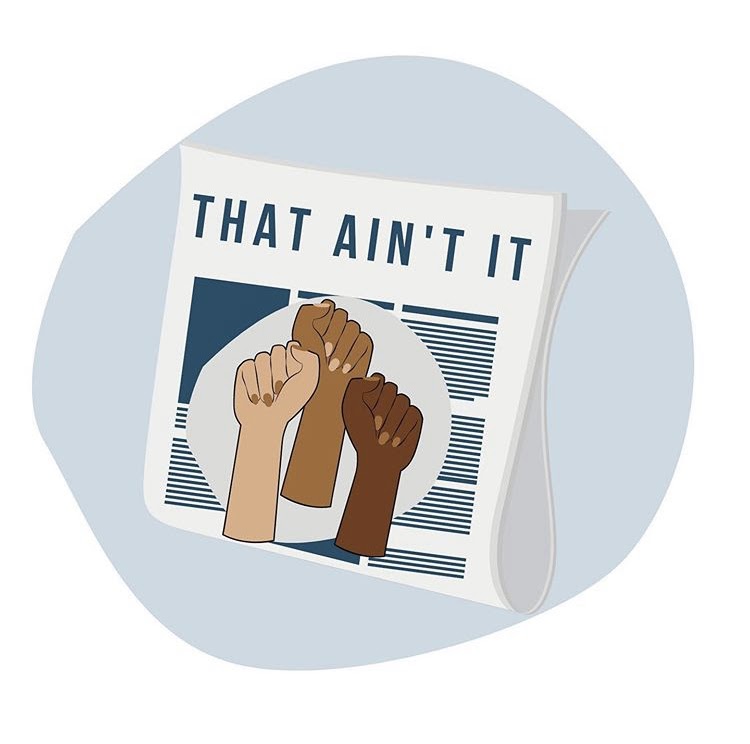“That Ain’t It”
October 9, 2020
Due to the Coronavirus, there are now a variety of outlets to communicate with others. Social distancing has prevented thought provoking conversations to take place in person. Many students are turning to social media to gain information about recent social events and Lauryn Hobbs is taking advantage of the situation. Quarantine emotions were silenced and reserved due to the inability for people to connect. The rise of the Black Lives Matter movement, once again, brought light to police brutality in America. Many new forms of peaceful protest emerged. Due to the effects Covid-19 has on large gatherings in public spaces, people have found many new ways to protest and connect. Virtual communication has made podcast one of the many more popular, safe ways to protest and voice an opinion.
“‘That Ain’t It’ is my form of protest against injustice and the overlooked aspects about our struggles,” Hobbs expresses.
Politically charged conversations are present in society’s current atmosphere. “That Aint It” gives students the ability to own up to their opinions in a COVID safe setting. The episodes are filmed over Zoom during an hour-long session. It takes Hobbs about 3 hours to film, edit and produce each episode. The time put into each episode is used to make sure the episodes stay controversial while also remaining politically correct.
One of the most important parts of the podcast is the representation of all views. “Being able to have conversations with people who have opposing views has got to be the best part,” Hobbs states.
The conversations are centered around current issues facing teenagers such as the Coronavirus and the BLM movement. These current social and political events have pushed more teenagers to speak up when they are passionate about something. “That Ain’t It” includes ideas from Hobbs and the participants in her podcast. Episodes are structured to be as uncensored as possible. The structure of the podcast was based more on questions created by Hobbs. As more episodes were filmed new ideas surfaced. Conversations for the podcast will now be less composed and more continuous
“That Ain’t It” is my form of protest against injustice and the overlooked aspects about our struggles,” Hobbs expresses.
Minor struggles came to Hobbs’ podcast. The problem with an unfiltered podcast is that it can be hard to keep everyone on track. There is only one unpublished episode in the podcast series. It just so happens to be Hobbs’ favorite episode. This episode went unpublished due to a very scattered result.
“ Even though it was the most fun to record, it was the least publishable because it was all over the place,” Hobbs says.
The very first episode is Hobbs’ accessible favorite. Proud of her planning and ideas, the “Cancel Culture” episode was a success for Hobbs. Nerves and what-ifs played a role in Hobbs’ emotions while filming the episode. However, the end result did not dissapoint.
“Our perspective is valuable even though [POC] are usually the ones left out of the larger conversations,” Hobbs says.
All opinions and views are welcome in the podcast. While there are politically charged and debatable topics, the goal of the podcast is to provide a platform for communication. Controversy is welcome in the podcast, given the topics such as ignorance, race and cancel culture are all very controversial subjects. Everyone has an opinion, some less popular than others. Hobbs is giving everyone a chance to take part in her podcast.
“Changes are happening all over the world right now and each person has a decision to make, to be a part of the change or not,” Hobbs declares.
The podcast can be found on Apple Podcast, Google Podcast, and Spotify. Anyone interested in being in the podcast can contact Hobbs via the @thataintitpodcast on Instagram.


